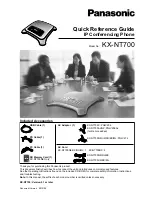
77
T-Ratings: Wireless devices rated T3 or T4 meet FCC requirements and are likely to
be more usable with a hearing device’s telecoil (“T Switch” or “Telephone Switch”)
than unrated wireless devices. T4 is the better or higher of the two ratings. (Note
that not all hearing devices have telecoils in them.)
For more information on FCC’s Hearing Aid Compatibility requirements for wireless
phones, please visit, https://www.fcc.gov/hearing-aid-compatibility-wireless-
telephones.
Use of Your Device while Operating a Vehicle
Please consult the manufacturer of any electronic equipment that has been
installed in your vehicle as RF signals may affect electronic systems in motor
vehicles.
Please do not operate your device while driving a vehicle. This may cause a severe
distraction, and, in some areas, it is against the law.
Use of Your Device on an Aircraft
Don’t use your device during flight it may violate FAA regulations. Because your
device may interfere with onboard electronic equipment, always follow the
instructions of the airline personnel, and turn your device OFF.
Blasting Areas
In order to avoid interfering with blasting operations, your device should be turned
OFF when in a blasting area or in an area with posted signs indicating that people in
the area must turn off two-way radios. Please obey all signs and instructions when
you are in and around a blasting area.
Proper Battery & Adapter Use and Disposal
•
Do not disassemble or open, crush, bend or deform, puncture or shred.
•
Do not modify or remanufacture, attempt to insert foreign objects into the battery,
immerse or expose to water or other liquids, expose to fire, explosion or another
hazard.
•
Only use the battery for the system for which it is specified.
•
Do not short circuit a battery or allow metallic conductive objects to contact
battery terminals.
•
Replace the battery only with another battery that has been qualified with the
system per this standard. Use of an unqualified battery may present a risk of fire,
explosion, leakage or another hazard. Only authorized service providers shall
replace the battery.
•
Promptly dispose of used batteries in accordance with local regulations.
•
Battery usage by children should be supervised.
•
Avoid dropping the battery. If the battery is dropped, especially on a hard surface,
and the user suspects damage, take it to a service center for inspection.
•
Improper battery use may result in a fire, explosion or another hazard.



































